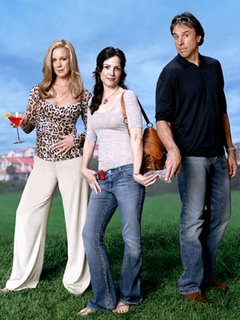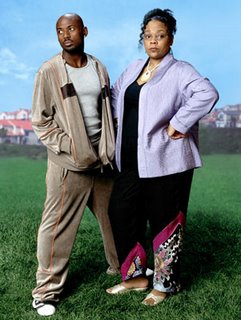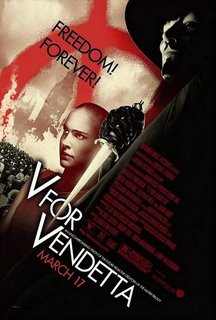Must Download: Weeds (2005)

I don't normally review TV shows, but as the countdown begins to a new season of "Weeds" (and to the DVD release of the first season) I felt it necessary to voice my opinion about the show.
"Weeds" is a sitcom about dealing drugs in the suburbs. Okay, so some shows try a little too hard to shock in order to gain an audience ("Starved," and later seasons of "Nip/Tuck" come to mind). "Weeds" doesn't fall in that category. Rather, it is a thoughtful and above all well rounded depiction of life in the suburbs--and the many complicated economic and sociocultural aspects of building a drug pyramid.
The show stars Mary-Louise Parker (The West Wing, Fried Green Tomatoes) as Nancy Botwin, a widowed mother of two who is barely able to make ends meet after the very unexpected death of her young husband, Judah. Although I'm sure Nancy could have figured out some legal way to pay the bills, the one she chooses is pot dealing.
We meet the requisite colorful array of supporting characters: Nancy's CPA (Kevin Nealon) who is also her biggest customer; Celia (Elizabeth Perkins) as her uptight, miserable friend; Andy (Justin Kirk) her dead husband's screw-up brother; her kids, 16-year-old Silas (Hunter Parrish) and 11-year-old Shane (Alexander Gould); her dealers, Heylia James (Tonye Patano) and her nephew Conrad (Romany Malco of the 40-year-old Virgin). No matter how much the viewer might disagree with the morality of the script, it's hard to argue that the acting and dialogue are anything short of brilliant. Elizabeth Perkins has never been better. Her character could have been totally played over the top and made into a two-dimensional caricature of a WASPy housewife. Instead, Perkins makes her into a real person, with lovable and hatable qualities (mostly hatable, but she has her moments). Kevin Nealon is funny. Very funny. He was born to play his inexplicably successful professional pothead character. Mary-Louise Parker (who beat out ALL of the Desperate Housewives for best actress at the Golden Globes) is about as real as you get in her character. "Weeds" manipulates us into empathizing with Nancy--then it makes us question this empathy. The show would not work without her compelling performance. The best lines are given to Heylia, who fire them like a high-powered assault rifle.

Okay, so the first episode kind of pissed me off. I was upset that the writers tried to set up Nancy as a totally sympathetic character, making her a widow, playing up that she "isn't hurting anyone," when she is, in fact, dealing drugs in a town full of innocent kids. Let's face it, as harmless as pot is, drug dealing is not cool. As I continued to watch the show, however, I realized that we the audience are intended to question Nancy's behavior, just as Nancy often questions herself. She behaves like a real person, and her customers behave like real potheads, and that kind of realism is incredibly hard to produce and squeeze in a 23-minute show. Stick with it. Watch them all before you decide. The first one had me doubting, the second one had me only moderately interested--but by the final episode I was totally engrossed in what was going to happen next. The best episodes, in my opinion, are "Lude Awakening," "Good Shit Lollipop," and the series finale, "The Godmother."
The term "sitcom" is applied to "Weeds" because of it's humorous content and 30-minute format. However, it breaks the sitcom rule that the audience must laugh once every thirty seconds--and it is blissfully free of a laughtrack.


